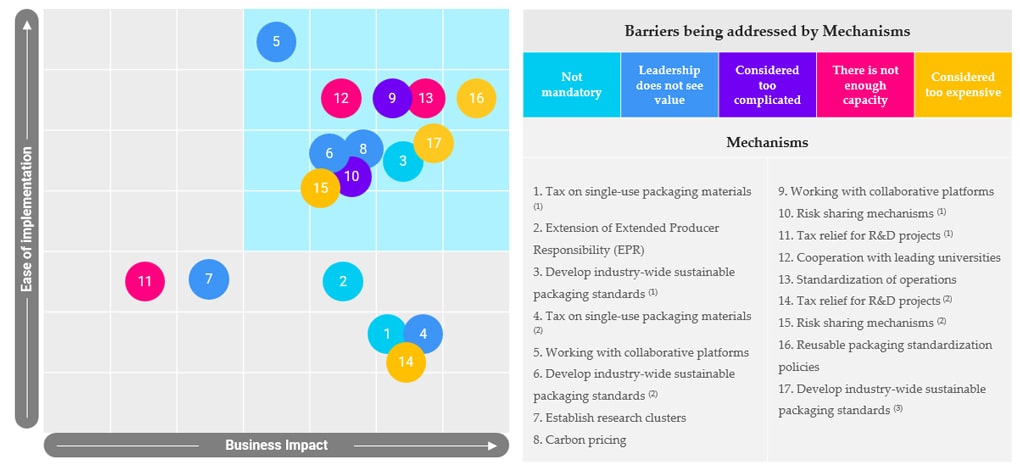The Role of Reusable Packaging in Supply Chains of Industrial Manufacturing Companies

Ivan Kudrenko, an experienced professional with a decade of experience in manufacturing and aerospace, recently presented a study at the 2024 IEEE 15th International Conference on Logistics and Supply Chain Management (LOGISTIQUA). This study investigates the role of reusable transit packaging in enhancing supply chain efficiency and sustainability in the US aerospace, automotive, and machinery industries. Amidst the growing pressures of global supply chain disruptions and stringent sustainability standards, Ivan’s research highlights reusable packaging systems’ critical importance and strategic advantages. This article distills the findings from a comprehensive study, highlighting the challenges, potential benefits, and the critical role of policy support in fostering a broader implementation of reusable packaging solutions.
Organized by Professor Jawab Fouad, LOGISTIQUA has become a seminal event for fostering research and discussion in logistics and supply chain management. The 2024 edition in Tunisia showcased 139 selected communications, reflecting a diverse international participation spanning a dozen countries from four continents. This conference provided a platform for academic discourse and aimed at influencing real-world practices by linking research with industry applications. The insights gained from the conference highlight the growing acknowledgment within the industry of the crucial role of sustainable practices, particularly reusable packaging, in enhancing supply chain resilience.
Methodology of the study
Ivan’s research utilized a comprehensive, three-pronged methodological approach to explore the adoption and perception of reusable packaging in the US B2B sector. He employed quantitative surveys targeted at sustainability and supply chain professionals across key industries, complemented by in-depth semi-structured interviews to gain nuanced insights and an extensive literature review to position these findings within the broader academic and industry discourse.
Findings from the study
The study revealed insightful data on the adoption rates and perceptions of reusable packaging across industries. Out of the 55 companies surveyed, an impressive 66% reported that they currently use some form of reusable packaging. When examined closely, the automotive sector leads with a 70% adoption rate, followed closely by the machinery sector at 67%, and the aerospace sector at 59%. This indicates a strong trend towards sustainable practices across these critical industries, although the degree of adoption varies.
As for the benefits that respondents perceived as a result of implementing reusable packaging, the predominant benefits highlighted were reduced environmental impact and significant cost savings over time. These findings align with the broader goals of enhancing operational efficiency and meeting sustainability targets, as reusable packaging contributes to leaner, more efficient operations and supports corporate sustainability goals.
The key challenges identified include high initial costs, which can be a deterrent for many companies considering the switch. Additionally, regulatory gaps and a degree of organizational resistance also pose significant obstacles. These barriers highlight the need for strategic interventions and supportive policies to facilitate a broader adoption of reusable packaging systems.
In summary, while the adoption of reusable packaging is on the rise, with clear benefits recognized by the industry, significant hurdles remain that must be addressed. These include financial, regulatory, and cultural challenges that could potentially slow down or hinder the progress towards more sustainable supply chain practices.
The respondents have also identified several key policy interventions that could support the adoption of reusable packaging:
- Indirect financial support: Implementing tax incentives and subsidies could lower the economic barriers, making it financially viable for more companies to invest in reusable packaging systems.
- Direct financial support: Offering grants to companies that pioneer reusable packaging systems could encourage innovation and experimentation, paving the way for broader industry adoption.
- Technology guidance and support: Many companies hesitate because they lack the technical know-how to integrate new systems seamlessly. Providing guidance and support can demystify the process and facilitate smoother transitions.
- Collaborative platforms and infrastructure: Developing platforms that facilitate the sharing and standardization of reusable packaging can lead to more widespread and efficient use. Such platforms can help companies learn from each other and scale up successful practices.
- Regulatory frameworks: Establishing frameworks that mandate the use of reusable packaging or impose penalties for non-compliance could create a more level playing field and push companies towards adopting sustainable practices.
Strategic opportunities and advantages
The research demonstrates that reusable packaging is not just a sustainability measure but a strategic business decision offering multiple competitive advantages. Companies implementing these systems report significant reductions in environmental impact and operational costs, primarily through decreased waste and lower raw material usage. Furthermore, reusable packaging enhances supply chain resilience, offering more predictable and controlled logistics processes, which are less susceptible to disruptions in disposable packaging supply chains. The strategic foresight in adopting these systems positions companies favorably within increasingly eco-conscious markets, potentially significantly boosting their brand reputation and customer loyalty.
Next steps and call to action
Moving forward, Ivan suggests a proactive approach in three key areas: Firstly, advocacy for more supportive policies is essential. By engaging with policymakers and industry associations, businesses can help shape a legislative environment that not only encourages but rewards sustainable practices. Such measures could significantly reduce the implementation barriers currently faced by many companies. Secondly, educational campaigns are critical. These should aim to shift industry norms by highlighting successful case studies and quantifying the long-term benefits of reusable packaging systems. Lastly, continuous innovation and standardization in packaging design and materials is necessary to address any practical challenges and enhance the usability and effectiveness of reusable solutions. These efforts will not only facilitate the broader adoption of reusable packaging but also ensure that it remains aligned with the evolving needs of industries and regulatory standards.
A comprehensive framework designed to address the barriers identified and to facilitate the advocacy for regulatory support has been developed and presented in the conference. This framework consists of a series of specific mechanisms that practitioners, especially supply chain managers, chief sustainability officers, and government relations professionals, can use. These mechanisms are tailored to enhance the adoption of reusable packaging within their organizations and throughout their industry. Each mechanism within the framework has been scored based on two key criteria: the ease of implementation and the anticipated business impact. This scoring system helps stakeholders identify which actions can be implemented quickly and effectively, and which are expected to have the most substantial impact on their operations and sustainability goals. By leveraging this framework, organizations can not only overcome the challenges but also lead the way in sustainable supply chain management. It empowers professionals to make informed decisions that align with both corporate and global sustainability objectives.

Conclusion
Ivan Kudrenko’s presentation at LOGISTIQUA 2024 underscored the vital role of reusable packaging in the future of sustainable supply chains. His research offers a comprehensive blueprint for industries poised to make a significant environmental impact through strategic business decisions. As the global landscape continues to evolve, embracing reusable packaging is not merely an environmental act but a crucial strategic decision that can help companies achieve their operational and sustainability goals.
Have you read?
The SEO Specialist Career Path Explained.
5 Reasons – Why PDFs Are the Most Sought-After Choice for Businesses?
How to recognize the signs of stress in yourself, your colleagues and your team.
Mindset and Mastery: Repetition for Improvement.
Prioritizing Mental Health: A CEO’s Perspective on Supporting Your Team.
Bring the best of the CEOWORLD magazine's global journalism to audiences in the United States and around the world. - Add CEOWORLD magazine to your Google News feed.
Follow CEOWORLD magazine headlines on: Google News, LinkedIn, Twitter, and Facebook.
Copyright 2025 The CEOWORLD magazine. All rights reserved. This material (and any extract from it) must not be copied, redistributed or placed on any website, without CEOWORLD magazine' prior written consent. For media queries, please contact: info@ceoworld.biz








